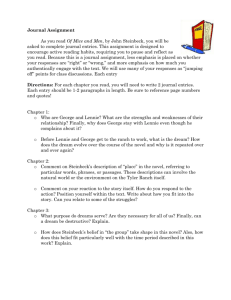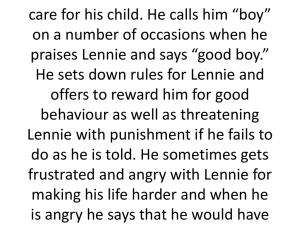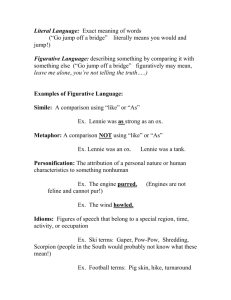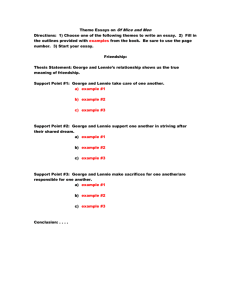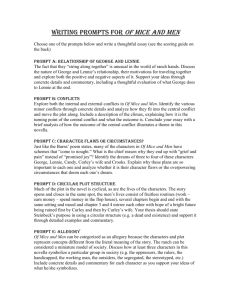Of Mice and Men
advertisement
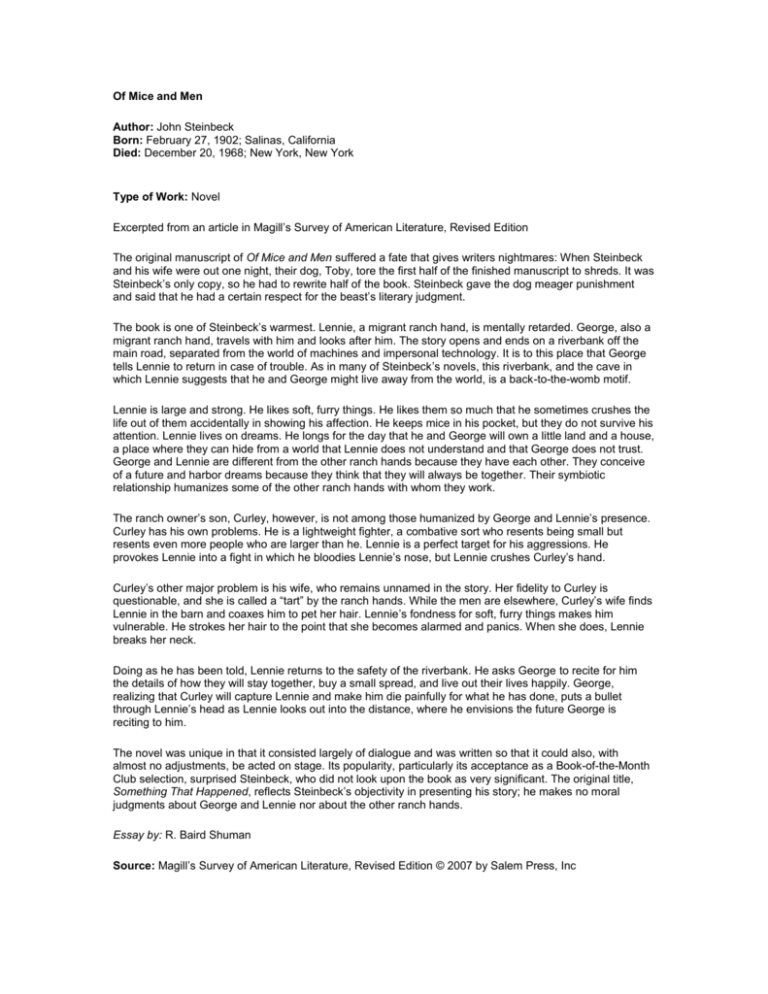
Of Mice and Men Author: John Steinbeck Born: February 27, 1902; Salinas, California Died: December 20, 1968; New York, New York Type of Work: Novel Excerpted from an article in Magill’s Survey of American Literature, Revised Edition The original manuscript of Of Mice and Men suffered a fate that gives writers nightmares: When Steinbeck and his wife were out one night, their dog, Toby, tore the first half of the finished manuscript to shreds. It was Steinbeck’s only copy, so he had to rewrite half of the book. Steinbeck gave the dog meager punishment and said that he had a certain respect for the beast’s literary judgment. The book is one of Steinbeck’s warmest. Lennie, a migrant ranch hand, is mentally retarded. George, also a migrant ranch hand, travels with him and looks after him. The story opens and ends on a riverbank off the main road, separated from the world of machines and impersonal technology. It is to this place that George tells Lennie to return in case of trouble. As in many of Steinbeck’s novels, this riverbank, and the cave in which Lennie suggests that he and George might live away from the world, is a back-to-the-womb motif. Lennie is large and strong. He likes soft, furry things. He likes them so much that he sometimes crushes the life out of them accidentally in showing his affection. He keeps mice in his pocket, but they do not survive his attention. Lennie lives on dreams. He longs for the day that he and George will own a little land and a house, a place where they can hide from a world that Lennie does not understand and that George does not trust. George and Lennie are different from the other ranch hands because they have each other. They conceive of a future and harbor dreams because they think that they will always be together. Their symbiotic relationship humanizes some of the other ranch hands with whom they work. The ranch owner’s son, Curley, however, is not among those humanized by George and Lennie’s presence. Curley has his own problems. He is a lightweight fighter, a combative sort who resents being small but resents even more people who are larger than he. Lennie is a perfect target for his aggressions. He provokes Lennie into a fight in which he bloodies Lennie’s nose, but Lennie crushes Curley’s hand. Curley’s other major problem is his wife, who remains unnamed in the story. Her fidelity to Curley is questionable, and she is called a “tart” by the ranch hands. While the men are elsewhere, Curley’s wife finds Lennie in the barn and coaxes him to pet her hair. Lennie’s fondness for soft, furry things makes him vulnerable. He strokes her hair to the point that she becomes alarmed and panics. When she does, Lennie breaks her neck. Doing as he has been told, Lennie returns to the safety of the riverbank. He asks George to recite for him the details of how they will stay together, buy a small spread, and live out their lives happily. George, realizing that Curley will capture Lennie and make him die painfully for what he has done, puts a bullet through Lennie’s head as Lennie looks out into the distance, where he envisions the future George is reciting to him. The novel was unique in that it consisted largely of dialogue and was written so that it could also, with almost no adjustments, be acted on stage. Its popularity, particularly its acceptance as a Book-of-the-Month Club selection, surprised Steinbeck, who did not look upon the book as very significant. The original title, Something That Happened, reflects Steinbeck’s objectivity in presenting his story; he makes no moral judgments about George and Lennie nor about the other ranch hands. Essay by: R. Baird Shuman Source: Magill’s Survey of American Literature, Revised Edition © 2007 by Salem Press, Inc
